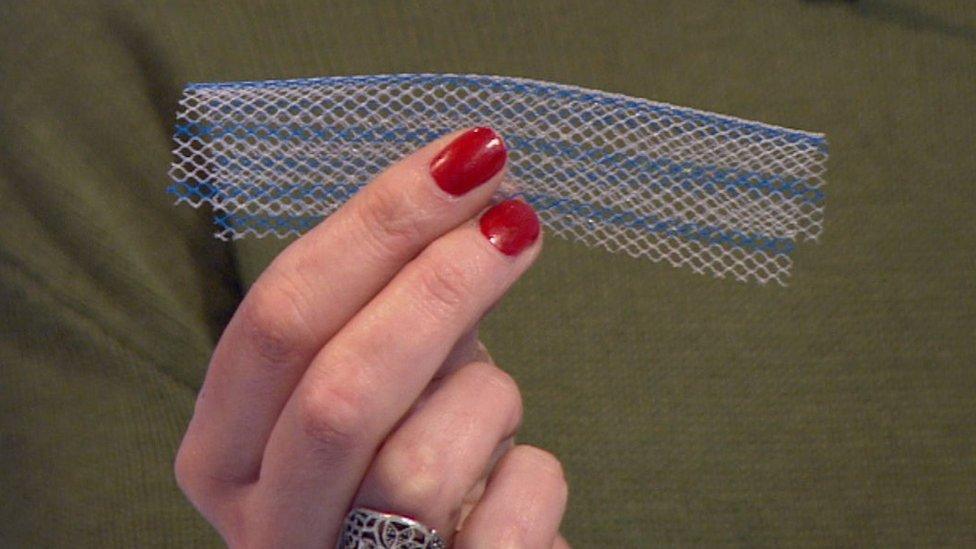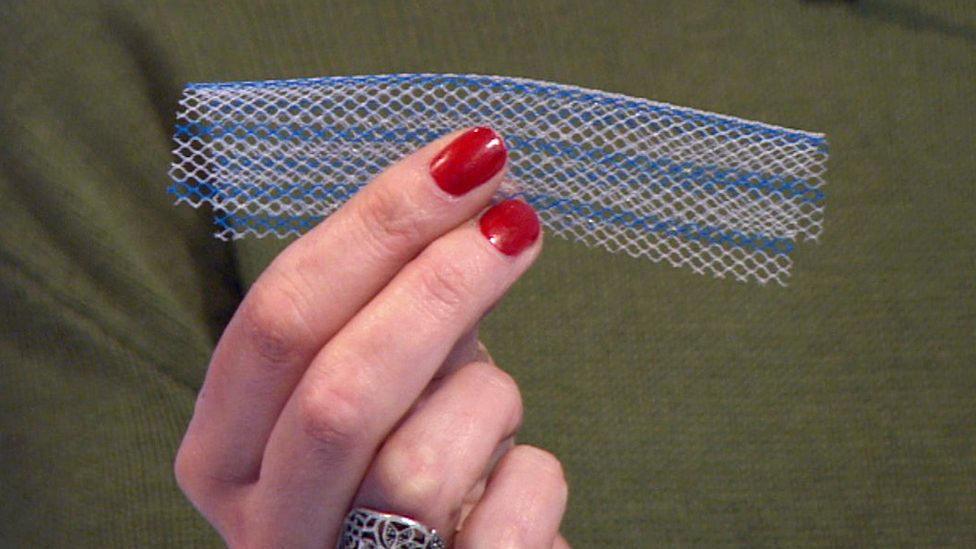Mesh 'last option' for incontinence
- Published

The mesh implants are used to ease incontinence and to support organs
Women who need treatment for urinary incontinence should only be offered mesh surgery as a last resort, new draft guidelines for the NHS advise.
The National Institute for Health and Care Excellence (NICE) says non-surgical options, like pelvic muscle exercises, are the first to turn to.
The NHS in England has already put restrictions on mesh operations after safety concerns.
Many women say the implants cause agony by cutting into tissue.
It is estimated that more than 100,000 UK women have had a mesh fitted. The net-like fabric can be attached into the wall of the vagina to act as a scaffold to support organs, such as the bladder, to keep them in the right place to help manage incontinence or another condition called prolapse.
Claire Cooper was left unable to have sex because of the pain
Mesh operations have not been banned altogether during the NHS "pause" - carefully selected patients continue to have access in discussion with their consultant.
The new guidelines for England make it clear that any woman considering having the surgery for incontinence or prolapse should be fully aware of the possible risks:
pain and/or painful intercourse
infection
vaginal bleeding or discharge
bowel problems
Patients and doctors should report any complications associated with the implants to the Medicines and Healthcare products Regulatory Agency. Details of the complications should be logged in a national registry.
Sir Andrew Dillon, chief executive of NICE, said: "Where surgical mesh/tape could be an option, there is almost always another intervention recommended in our guideline, which does not involve surgical mesh/tape. If a surgeon cannot provide a full range of choices to the patient, then she should be referred to one who can."
The Royal College of Obstetricians and Gynaecologists and The British Society of Urogynaecology both welcomed the NICE guidelines.
But Kath Sansom, from the campaign group Sling The Mesh, said the guidelines did not go far enough.
"Our ideal scenario is to see pelvic mesh stopped. Full stop. The risks are too great. It is totally unacceptable that women come out of a 'simple little operation' with shattered lives."
- Published10 July 2018

- Published30 January 2018
